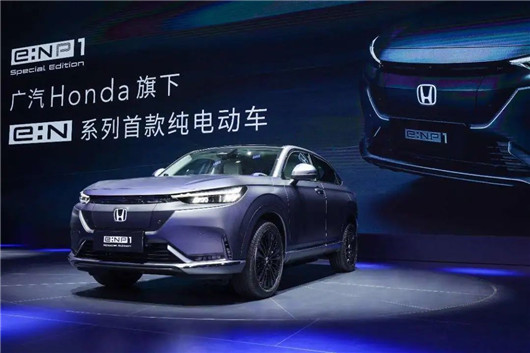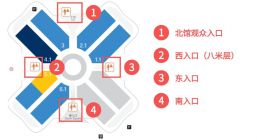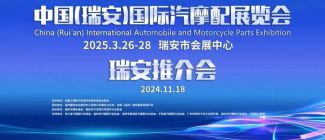Saying the harshest things, but doing the most ordinary things? Why is it so difficult for traditional car companies to block new car-making forces?
Will the dominance of China's auto market be transferred from traditional giants to newcomers? Three years ago, the answer to this question was undisputedly no. However, as the entire industry undergoes rounds of market transformation, China's auto market has finally come to the forefront of cutting history in the education of a group of new companies such as new car manufacturers.
From 2021 onwards, the wave of energy changes and consumption innovation will not only allow all kinds of "outsiders" to develop the idea of building a car, but also force traditional car companies to make new choices. Even Japanese and Korean car companies, who are still cautious in their attitude towards full electrification, have to stand up at the moment.
In the middle of last year, Hyundai Motor officially announced the electric vehicle brand "Ani Krypton"; at the end of the year, Toyoda Akio jumped to the front to declare war on the world with a large lineup of 15 new electric vehicles... This series of actions seems to be all It is proving that those rising stars still cannot escape the fate of being surrounded and suppressed by traditional bigwigs.
But is it really so? "Wei Xiaoli" crossed the gate of selling 10,000 vehicles a month one by one, and while building a defense line for himself, the entire industry was also reshaped. From the migration of consumption hotspots, the direction of product research and development, and even the construction of the industrial chain, all of them are raising new topics for the whole industry.
Being in it, as the first person in the radical transformation of traditional car companies, Volkswagen, with the help of ID. car series and a huge channel network, attempts to confront the new forces of car manufacturing. At this moment, we also see a new round of offensive from the electrification plans that Honda and Toyota are about to finalize. Or release a new brand strategy, or set up a separate business unit to deal with...
However, it is also obvious that the situation of always being at a disadvantage in the game is to let the outside world fall into thinking about 2022 and even the future: Are the inherent advantages retained by traditional car companies gradually hindering the development of electrification? How much lethality is there in the resolute attitude?
Although the determination is great, but the strength is not enough?
Everyone knows the madness of the new energy market last year. In the past, Tesla, Weilai, etc. have seized the high-end pure electric vehicle market of more than 25%, and then BYD has provoked disputes in the entire car market. At that time, the role of traditional car companies in it fell from a supporting role to a group performance.
Although the emergence of models such as Cadillac LYRIQ and Mercedes-Benz EQS has allowed the industry to see their accumulation and accumulation in pure electric technology. But at the moment, the huge difference in volume still reflects the powerless side of traditional car companies under the curtain of the times.
There is also a reason why electric vehicles are not selling well. On the one hand, it is indeed because of the huge dividends remaining in the fuel vehicle business that most vested interests have no time to take into account the changes brought about by electrification. On the other hand, it is precisely its already solidified development model that restricts its pace in electrification transformation.
Compared with the asset-light operation model and the worry-free way of doing things, the new car-making power, the decision-making constraints within the joint venture company, the gap between products and consumer demand, and the entanglement of interests between OEMs and dealers, etc. Appearance, not only failed to allow car companies to quickly find the answer to the problem, but more and more exacerbated their disadvantages.
Take Volkswagen as an example. At the beginning of last year, Herbert Diess, the head of Volkswagen, publicly called Elon Musk on Twitter, "Hello @Twitter! I am here to let Volkswagen The group has an impact. Of course, [email protected]�ID.3 and e-tron won their first win in the European market.”
However, judging from the results of the ID. series officially entering China and fighting in the terminal market so far, I think this should not be the performance of a giant that has dominated the Chinese auto market for 30 years.
Thinking about it carefully, apart from the fact that the ID series does not have absolute product highlights, the self-built direct sales channel ID.Store (X) can not undertake the mission of the OEM to face the terminal market directly, but also makes it in its own huge 4S. It is difficult to have an advantage under the store network. In addition, if the dealers have no intention to increase the promotion of pure electric models under the premise that the fuel vehicle business is still strong, everything will backfire.
Volkswagen sold only 70,625 ID. series electric vehicles in the Chinese market last year, and when it failed to achieve its annual sales target as scheduled, Feng Sihan, then CEO of Volkswagen China, said, "For us, this is very difficult. year."
But the cruelty of reality is that the same problem even spreads from the public to the luxury car camp headed by the BBA. Throughout the year, only the BMW iX3 can barely rely on the strategy of "same price for gasoline and electricity" to deliver 22,446 new cars. It can be said that in order to gain a sense of existence, apart from starting a "price war", BBAs have no effective measures.
Yes, in the recent period of time, the outside world has often heard how determined these mainstream car companies are to go towards electrification. With the release of a large number of electric vehicles that are close to the people, performance or intelligence, everyone can't wait to engrave their determination to "fully realize electrification in 2030" in their chests. Since the beginning of 2022, such plans have also been implemented one by one.
And what I still want to ask is that the annual sales target of "Weixiaoli" is going to 200,000 vehicles, and the new wave of car building led by Chinese car companies is also accelerating. Are you ready?
In front of "catfish", there is no shortcut
Looking back at the origin of this dark war, almost everyone believes that the final result of the new energy industry is that traditional car companies once again realize the encirclement and suppression of all latecomers. Without the blessing of a mature manufacturing system, the new forces of car-making, including Tesla, are short-lived.

At the end of 2020, Feng Sihan also vowed in China, "We believe that the ID.4 will really change the gameplay, and we firmly believe that the ID. family can completely change the car market. The ID. family has a solid foundation: Volkswagen's unparalleled Manufacturing standards, the high level of consumer trust in our brand, and our ability to maintain economics and high quality in mass production."
But on the other hand, Herbert Diess expressed deep emotion in the article "How We Change Volkswagen", "The structures and processes we have formed over the decades have become outdated and complex. The most important thing is that , a series of entangled interests and political agendas within the group also made this project difficult.”
Now, 2021 is a long time past. Regardless of whether the pain of industrial transformation will make everyone suffer as much as Volkswagen is in the process of electrification, the real status quo so far is indeed magnifying this contradiction.
As we mentioned earlier, mainstream joint venture car companies have decided to regard 2022 as the latest inflection point for the implementation of "electrification". All in the public needless to say, Honda's latest electrified products e:N series have opened pre-sale recently, the official landing of Toyota bZ4X has been planned, even BMW i3/i4, Audi Q4/Q5 e -tron and other luxury pure electric models are also gaining momentum.
However, once we return to the reality of China's new energy market, we suddenly find that after such a long period of trial and error, from product to channel, from personnel to service, from mechanism to system, in the pace of these traditional car companies It seems that some are more focused on the future.
Whether it means "big thunder and little rain", I dare not say. At least compared with the leading new energy car companies, the so-called awakening of traditional car companies still has the problem of acclimatization, but it is true. Volkswagen, which is actively seeking change, Ford, which brought the Mustang Mech-E to China for the first time, and GM, which has been holding the blue-colored car series for several years, one counts as one.
If, among the many consumption options, they have never been the first choice of the current young generation, and there is no absolute advantage in the actual car experience. Then, it means that, subject to the channel expansion with little effect, the product itself is lackluster and other practical problems, and with the brand power becoming insignificant in the new wave of consumption, the solidified service system is difficult to come up with new ideas, and in the newcomer Today in power, it is still difficult for the backward traditional car companies to make achievements.
Do you think that Hyundai and Nissan have been reluctant to launch the brand because they naively feel that the Chinese market is of little importance? No, in the case of rapid market iterations, they just can't come up with good enough products and more forward-looking decisions.
At the end of last year, when BYD Chairman Wang Chuanfu boldly predicted that the penetration rate of the new energy passenger vehicle market in 2022 would exceed 35%, in the face of a nearly doubling of the market gap, major traditional joint venture car companies seemed to see hope. Especially for those strong brands, in front of the potential huge dividends in the market, everything is easy to say.
Now, in Europe, Tesla's Berlin plant has officially started production. In Elon Musk's awkward dance, there is a sharp knife stabbing at Wolfsburg. Then, looking back at China, "Wei Xiaoli", a new batch of new forces such as Huawei AITO, Niu Chuang, as well as high-end new energy brands incubated by independent car companies, and the gap between traditional joint venture car companies, is it not hidden? With a long gun.
At this stage, in layman's terms, "what are you fighting with me?"
Under the shaping of emerging forces, China's new energy market has rebuilt a new set of rules of the game. Toyota, Honda and other car companies that are used to being held in hand, have no shortcuts except to clearly recognize their own disadvantages and let go of their posture to learn. go. No matter how "overhead" the release of a new brand or new strategy is, the final result of the obsession and the shackles cannot be thrown away, one can imagine.
AMS2024 Exhibition Guide | Comprehensive Exhibition Guide, Don't Miss the Exciting Events Online and Offline
Notice on Holding the Rui'an Promotion Conference for the 2025 China (Rui'an) International Automobile and Motorcycle Parts Exhibition
On September 5th, we invite you to join us at the Wenzhou Auto Parts Exhibition on a journey to trace the origin of the Auto Parts City, as per the invitation from the purchaser!
Hot Booking | AAPEX 2024- Professional Exhibition Channel for Entering the North American Auto Parts Market
The wind is just right, Qianchuan Hui! Looking forward to working with you at the 2024 Wenzhou Auto Parts Exhibition and composing a new chapter!
Live up to Shaohua | Wenzhou Auto Parts Exhibition, these wonderful moments are worth remembering!
Free support line!
Email Support!
Working Days/Hours!





